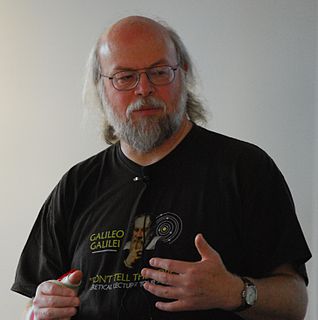A Quote by Wietse Venema
Most of the effort in the software business goes into the maintenance of code that already exists.
Related Quotes
While the creative works from the 16th century can still be accessed and used by others, the data in some software programs from the 1990s is already inaccessible. Once a company that produces a certain product goes out of business, it has no simple way to uncover how its product encoded data. The code is thus lost, and the software is inaccessible. Knowledge has been destroyed.
The security world needs to take a more proactive approach. A lot of companies will know an exploit exists and they'll release the software anyways, and the patch later on. Stuff like this needs to stop. There needs to be some kind of agency that verifies code before it's released, maybe a grading system for code.
There's a strong distinction to be made between dry code smart contacts and wet code's physical law. So law is based on our minds, our wetware - it's based on analogy. The law is more flexible; software is more rigid. Various laws tend to be batched in jurisdictional silos. Software tends to be independent.
Performing in the theater is a very ethereal profession because you do it once and it goes out into the ether and it goes into people's minds and that's the only place that it ever exists. And it never exists truly; it only exists in the way that people think they remember it. But it's a really powerful way to tell a story and to pass something on.
I'm not of the opinion that all software will be open source software. There is certain software that fits a niche that is only useful to a particular company or person: for example, the software immediately behind a web site's user interface. But the vast majority of software is actually pretty generic.





































